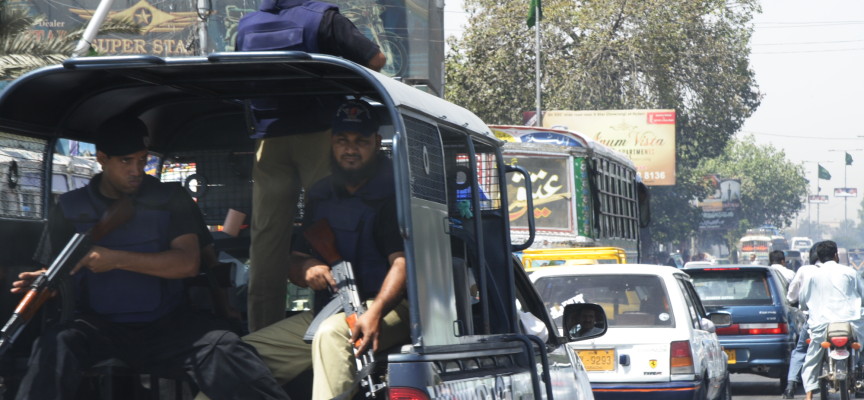In 2002, the National Anti-Corruption Strategy Project report (an initiative of the National Accountability Bureau) defined ‘corruption’ as:
“… behavior on the part of office holders in the public and private sectors, in which they improperly and unlawfully enrich themselves and/or those close to them, or induce others to do so, by misusing the position in which they are placed.”
More simply it comprises “the misuse of entrusted power for private benefit.”
That very year, the National Corruption Perception Survey’s study showed that Pakistan’s police remain the highest ranking institution in Pakistan when it comes to corruption. The same findings were then repeated by the National Corruption Perception Survey in 2006, 2009 and 2010. Amongst the various kinds of corruption faced across the provinces, “money paid for FIR”; “money paid to arrest accused”; “money paid to avoid false arrest”, were just a few of the perversions that law enforcement forces the public to endure.
Similarly in 2008, the Anti-Corruption Establishment, Punjab – a provincial unit established in 1970 – confirmed the continuance of the police force on the “top slot” of the corruption list. This was further demonstrated in 2010 when the Global Corruption Barometer of Transparency International rated 11 institutions of Pakistan on a scale from 1 to 5, with 5 being extremely corrupt. The police force earned a rating as high as 4.5.
Over the years, incidents of rape, bribery, false accusation and imprisonments, brutality, manipulating case data and facilitating land owners, criminal gangs and other such nefarious individuals by the police have filtered through the media to the public. Hardly any of these reports are followed through till justice prevails and even fewer cause any noticeable ripples at helm of the country.
Police – At the Receiving End
Having said that, in recent years where bombs have become the new pistol or Kalashnikov, law enforcement agencies have also been offered up as the biggest sacrifice:
- High Court Lahore, January, 2008
- FIA office, Lahore, March 2008
- Manawan Police Training School, Lahore, March 2009
- The Criminal Investigation Department, Karachi , November, 2010
- Lakki Marwat Town, November 2010
- Peshawar police station, February 2011
These are only a handful examples where the war against terror blew up literally in the face of our police force. Keeping in mind that the police are meant to maintain civil order and are trained to use force as a last resort, fighting a war is not what they technically signed up for. This is where the good cop stands in and remains at post.
Why the Corruption?
The paltry monthly income; minimal benefits and even more miserly retirement income combined with poor training and gaping holes in the education system are the factors that the National Corruption Perception Survey or the Transparency International Barometer do not consider. The 2009 pay scales for the Sindh Police range from the basic salary of PKR 2970/ up to PKR 27, 680/. With all benefits included, the lowest salary reaches an insubstantial PKR 6983. That is roughly 83 US dollars per month. This is at a time when the price of petrol per liter was about PKR 52.
To keep the equation simple, the following seem to be two most important factors: the overall corruption of the police force and what we pay them for services rendered. The layers of corruption making up Pakistan’s law enforcement agency are complex, contradictory and dense. Where they are perverted beyond belief, there are places they function with a certain transparency and fluidity. As recently as February 2011, the police were accused of sodomizing and murdering a Christian youth after taking him in custody without a warrant. Then in March 2011, the police rescued a 40 year old Christian woman who had been “sold into marriage”. There are several million police officers in Pakistan. At the end of the day, the government is responsible for the protection of its people, in and out of uniform. And it is the responsibility of the central and provincial authorities to provide the public with trustworthy law enforcement.
If they do not fulfill that duty; good cop, bad cop, we will all fall down.


Pakistani police or amazing police of Asia :D